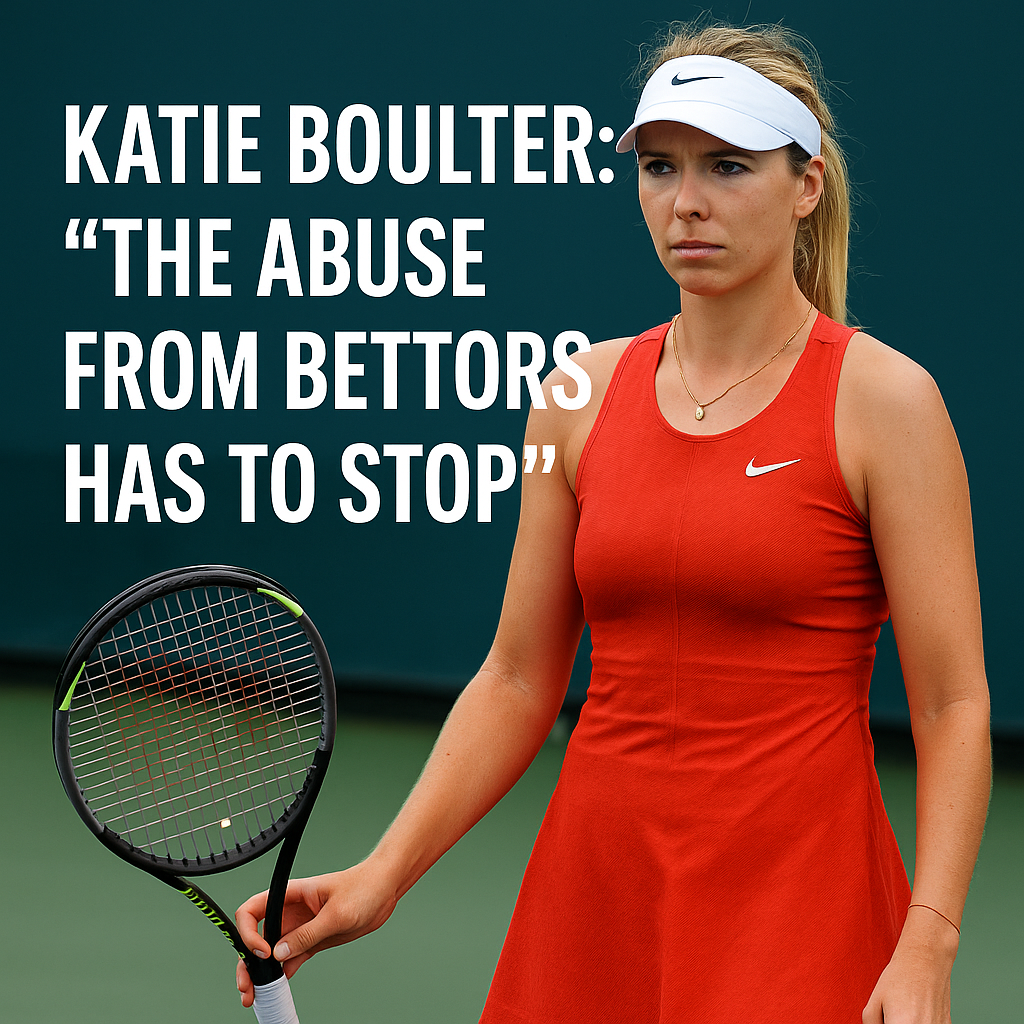
Katie Boulter Speaks Out Against Abusive Sports Bettors: “This Has to Stop”
Rising Abuse in Tennis: A Growing Problem
British tennis player Katie Boulter is making headlines not just for her performance on the court, but for her candid exposure of a troubling trend: online abuse fueled by sports betting losses. Boulter, who competed in the latest French Open, reported receiving violent messages and death threats – not only directed at her, but also at her family.
These messages often come from frustrated punters who lost bets placed on her matches. According to Boulter, many of these messages include language wishing her to “get cancer” or worse, explicitly referencing the desire to see harm come to her loved ones.
Mental Health Impact on Athletes
Boulter’s revelations point to a deeper, systemic issue in professional sports: the psychological toll of abuse tied to betting outcomes.
Even when she wins, there's always someone who bet on the opposite result and lashes out. Boulter highlights that this constant threat can severely impact a player's mental state, especially for less-established athletes who lack support systems or visibility.
Some players, she warns, may become afraid to compete fully or may even underperform deliberately to avoid backlash, especially if the abuse escalates in perceived credibility.
Criminal Syndicates and Match Manipulation
In more sinister cases, the issue goes beyond disgruntled bettors. Boulter hinted at criminal organizations attempting to influence matches, either by coercing athletes to underperform or manipulating outcomes for betting syndicates.
This raises broader concerns about match integrity in professional tennis and the role that unregulated or poorly monitored betting markets play in enabling such coercion.
A Call for Accountability and Legal Action
Boulter is not alone in raising the alarm. Major sports organizations like the NCAA have already begun coordinating with law enforcement agencies to trace and prosecute individuals who harass or threaten athletes online.
While prosecuting online threats remains legally complex, Boulter and others argue that ignoring this behavior is no longer acceptable. With sports betting becoming more accessible worldwide, especially through mobile platforms, the opportunity for abuse has only grown.
Efforts to track, report, and penalize abusers must evolve alongside the digital nature of modern threats. According to Boulter, online abuse must be treated with the same seriousness as in-person threats.
The Bottom Line: Sports Must Protect Its Players
Katie Boulter’s stance is a necessary reminder that athletes are not just performers – they are human beings. As online betting grows, so does the need to reform digital conduct expectations, enforce consequences, and support victims of abuse.
Fans, media outlets, and sports governing bodies must work together to create a safe environment where players can perform without fear, both physically and mentally.

